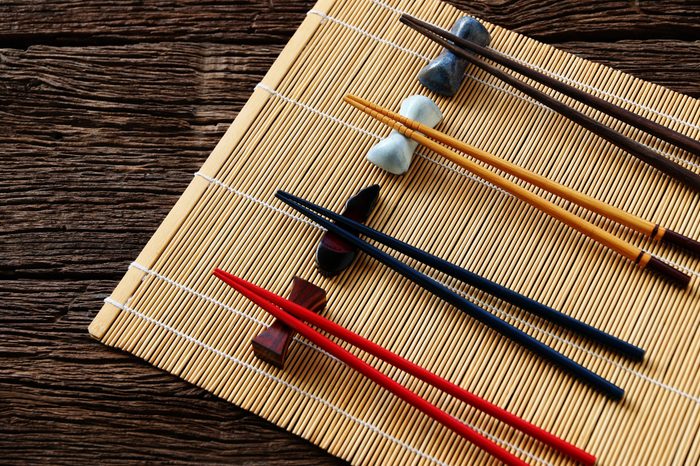
Don’t leave your chopsticks sticking up in Japan
Never stick your chopsticks vertically in a bowl of rice. “It’s considered extremely taboo because it reminds people of funerals where a bowl of rice is offered with two chopsticks standing vertically in the center as an offering to the deceased,” explains Bonnie Tsai, manners expert and founder and director of Beyond Etiquette. Instead, place them across the top of the bowl or next to the bowl if you’re still eating. Before traveling, you should brush up on these 10 manners that are considered rude in America but are polite in other countries.

Remove your shoes before entering a home in Vietnam
Visitors to most Asian countries should be prepared to remove their shoes before entering a home, says Lori Whatley, PhD, a human behavior expert and clinical psychologist. “It is considered a major cultural mistake not to do this as the interior of a home represents personal space,” she explains. Show respect by leaving your shoes outside the door (yes, even overnight) and making sure your feet are clean.
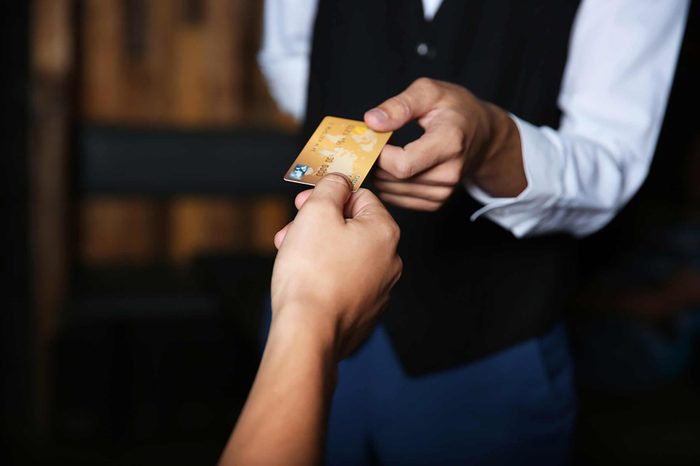
Request your bill in Italy
When dining out in Italy, be on your best manners as meals are typically considered more formal affairs than most Americans are used to, according to the travel company Fodor’s. Another difference is that the waiter will not bring you the check until you ask for it so you need to alert the waiter when you are ready to pay rather than simply waiting to be presented with the bill. In the United States, you’ll want to give up these 20 rude restaurant mistakes you need to quit ASAP.

Follow the dress code in Saudi Arabia
It doesn’t matter if you think a country’s rules around clothing are appropriate or not—if you are a guest in that country, you should follow them, says Maryanne Parker, an international etiquette consultant in San Diego, speaker, author of Posh Overnight, and founder of Manor of Manners International. “In Saudi Arabia women are required to wear a headscarf and abaya (long dress) if they want to enter certain places, like a mosque,” she explains. “Yes, even if it’s July and 110 degrees outside. Not all Middle Eastern nations are that strict but make sure you ask about the dress code before going.”
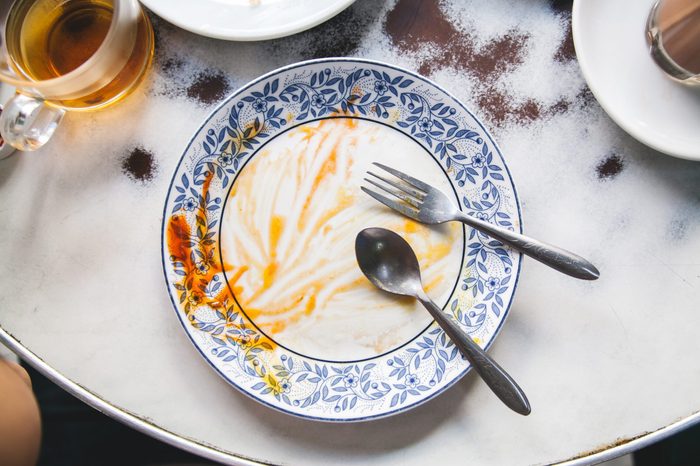
Clear your plate in Greece
“Leaving food on your plate can be seen as an insult to your host as it can imply that you didn’t think the food was appetizing,” Tsai says. If you’re worried about overeating or not liking something, take small portions of each dish and eat all of what you take. If you want more you can ask for seconds, which will delight your host.
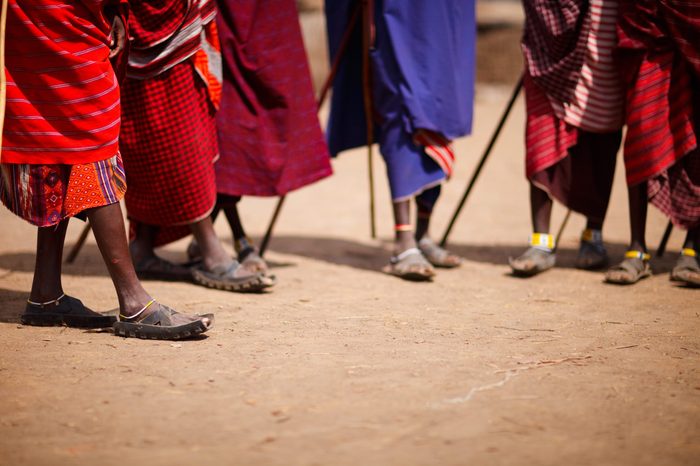
Spit to say hello in Kenya
“In Kenya, the Maasai tribe spit at one another the same way we shake hands in America,” Whatley says. “It is considered a gift and compliment to be spit on in that culture.” However, Kenyans that are not part of the Maasai simply use a more casual wave or handshake to say hello.
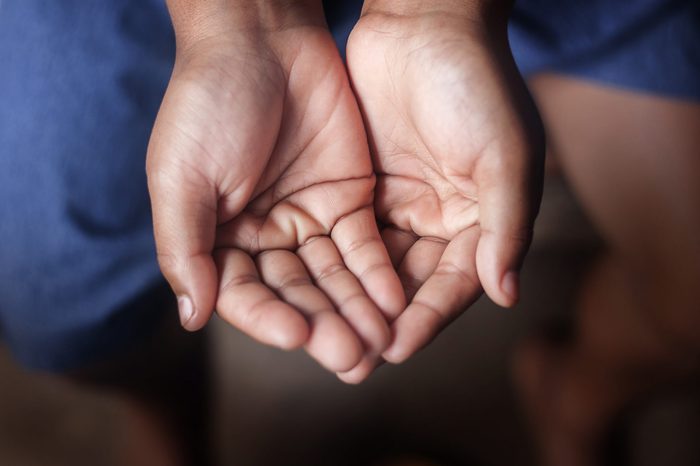
Be careful with compliments in Fiji
Fijian culture reveres the custom of kerekere, or “shared property,” according to Fodor’s. This means that if someone asks you for something, it’s polite to give it to them. On the flip side, this means you need to be careful of openly admiring something that belongs to a Fijian as they will feel obligated to give it to you, they add. Make sure you’re being polite with your tech too by avoiding these 11 times your AirPods make you seem rude.
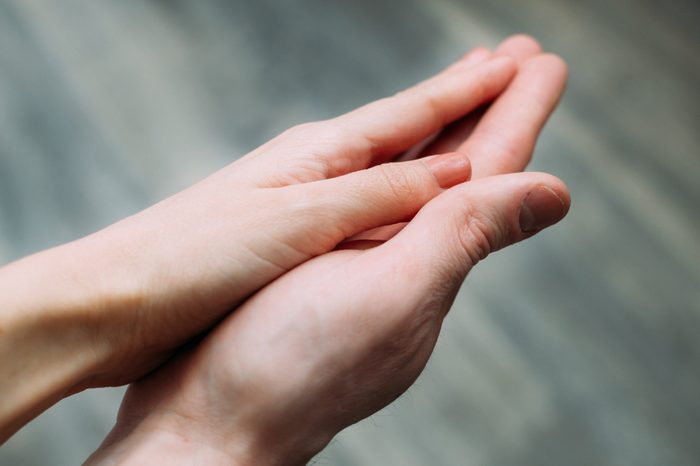
Clasp your own hands instead of shaking hands in Thailand
Shaking hands is a cultural faux pas in Thailand, Whatley says. “When meeting someone you will be offered a ‘wai’ which is a greeting involving putting palms together at chest level,” she explains. “This is their customary greeting and conveys reverence and respect.” Are you doing any of these 14 behaviors that make you look like a jerk?
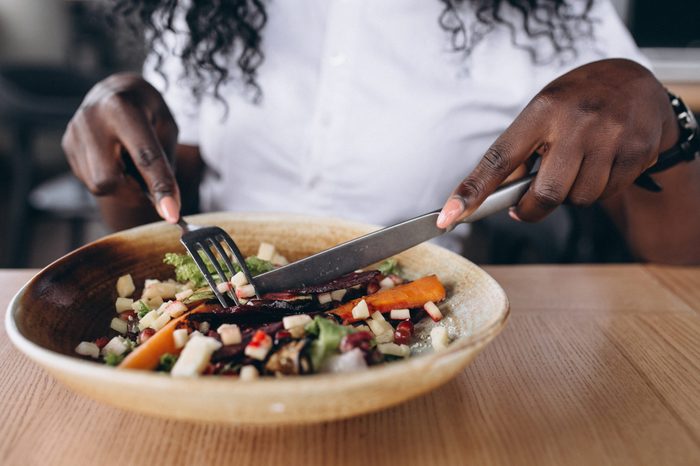
Don’t eat in front of people who are fasting in the United Arab Emirates
“If you travel to a Muslim country during Ramadan, a Holy month observed by the Muslims all over the world, know that observant people will be fasting from sunup to sundown,” Parker says. “It is a very poor manners to eat or drink in front of people who are fasting.” This doesn’t mean you don’t need to follow their fast but you should eat your meals where they won’t be bothered by the sight, sound, or smell of you eating.

Get in line in England
Lines, or “queues,” hold a special place in English etiquette, according to Fodor’s. “They highly value patience, and will turn on ‘queue jumpers’ who try to cut in line with some ferocity,” they explain. “Complaining while waiting in line is considered wimpy. Enduring the wait with good humor is considered a sign of strong moral character.”

Skip bouquets of sunflowers in Russia
Note to would-be suitors: “Giving a person yellow flowers in Russia represents hate and is offensive,” Whatley says. Yellow flowers are also considered funeral flowers. Another floral tip? “They only give flowers in odd numbers, an even number of flowers is never given,” she adds.
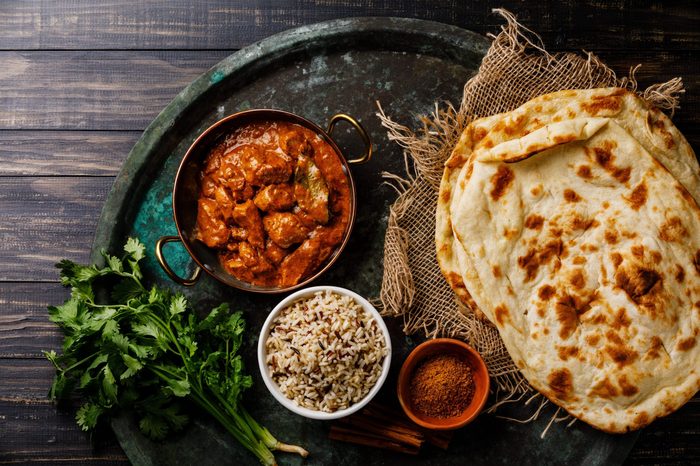
Eat with your fingers in India
Indian food is generally meant to be eaten with your fingers and will be served in such a way as to make that convenient for you, Tsai says. Use two fingers and the bread to scoop up liquidy dishes. “Make sure to use your right hand when eating as the left is seen as ‘unclean’ and disrespectful,” she explains. It’s polite to eat these 12 other foods with your hands, as well.
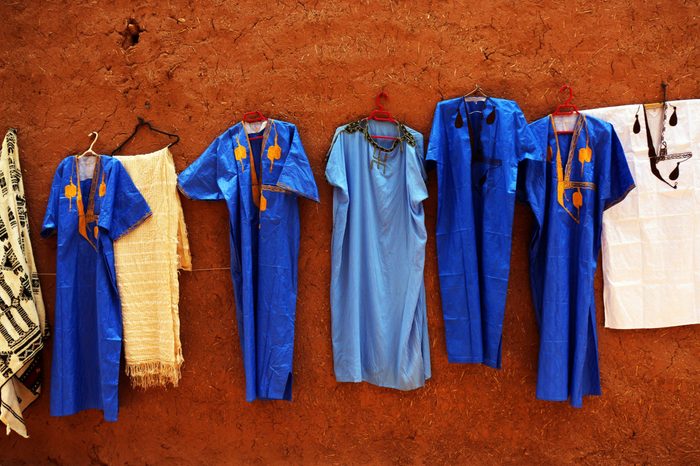
Keep your knees and shoulders covered in Morocco
Modesty isn’t just seen as a religious issue but is also a sign of respect and politeness in Morocco, according to Frommer’s. Both genders are generally expected to wear clothing that covers the shoulders and goes to below the knees. “Running shorts, sleeveless shirts, and beachwear are only worn when playing sports or at the beach, and if worn at other times are almost tantamount to wearing only your underwear,” they write.
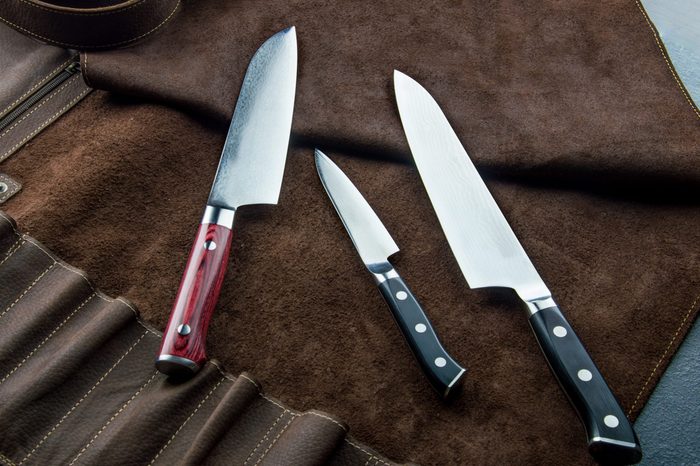
Never give knives as a gift in China
Gift giving is an important ritual in China, even among new acquaintances, but when you’re picking out a present be sure to avoid any cutting implements, Tsai says. “Never give knives, scissors, or any other cutting equipment as gifts because they signal the end of your relationship,” she says.
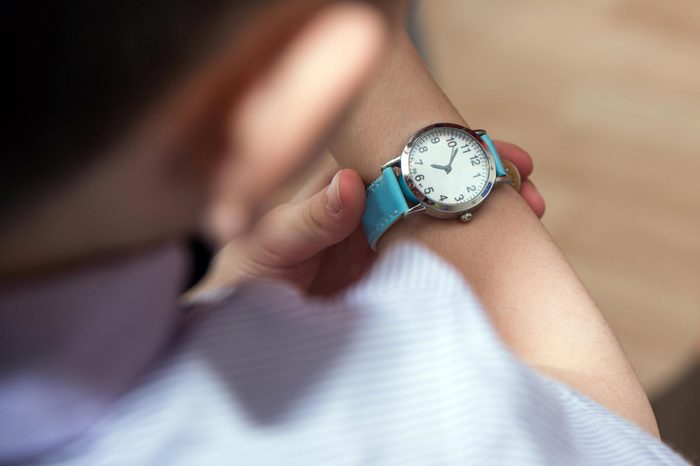
Patience is a virtue in Mexico
Things move at a much slower pace in Mexico than they do in the United States, according to Fodor’s. The good news is that there’s no stigma attached to being late, so feel free to take your time. If you are frustrated by others’ slowness though you’d best keep it to yourself. The traditional punctuality and straightforwardness of Americans, Canadians, and Europeans are often perceived as curt and aggressive, Fodor’s says. “Mexicans are extremely polite, so losing your temper over delays or complaining loudly will get you branded as rude and make people less inclined to help you,” they explain. Check out these other secrets your body language may be revealing about you.
